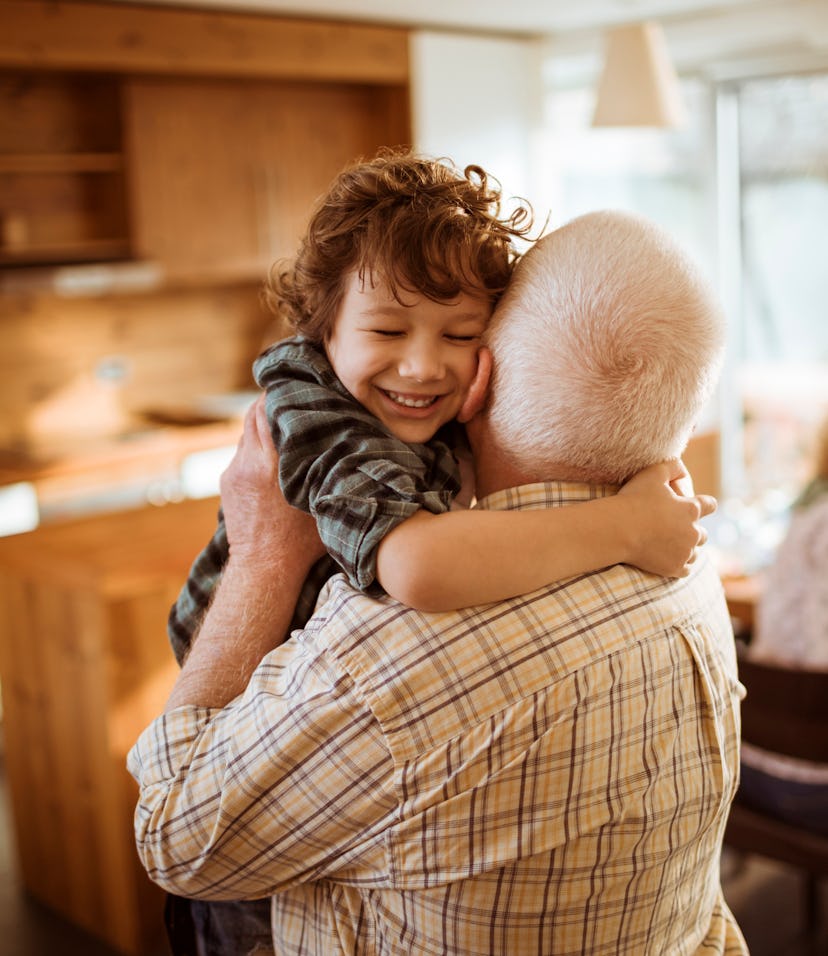Health

Why It Might Not Be Safe To See Grandparents Even After They've Been Vaccinated
Better to be safe than sorry.
December marked the debut of COVID-19 vaccines in America, and with it an enormous exhale across the country. Finally a potential solution to this year-long pandemic seems to have arrived, bringing the promise that families, separated out of social distancing requirements, might be reunited. But there are still fears of the virus spreading to worry about. So as much as we’d all like to see grandparents, is it safe to bring the kids over if grammy and grandpa have had the COVID-19 vaccine?
Dr. Mike Patrick, M.D., emergency medicine physician and general pediatrician at Nationwide Children’s Hospital, says we might need to curb our enthusiasm. Even though the first COVID-19 vaccination (called “the weapon that will end the war” by New York Gov. Andrew Cuomo) was given on Dec. 14, the global crisis is far from over.
Vaccines are being shipped across the country, but their rollout has been slow, according to the New York Times, which reported that only 2.1 million doses have been given out so far (a fraction of the 20 million federal officials had hoped for by the end of 2020).
Add to that the fact that receipt of the vaccine is not a silver bullet in this ongoing health care battle.
“While vaccines appear effective at preventing severe COVID-19 infection, they do not offer 100% protection, and we do not yet know if asymptomatic transmission is possible in vaccinated individuals,” Patrick tells Romper in an email.
Echoing a report in the New York Times that the Pfizer and Moderna vaccines greatly reduce the chance of serious illness, whether they stop the spread is unknown. Some medical experts are concerned that a so-called "subclinical infection" may still be possible, according to MLive.com. In that case, a vaccinated person might get COVID-19 but not show symptoms and could still spread the virus.
Because of that, Patrick says we all still need to keep up our social distancing measures.
“Recommendations to wear face coverings, practice physical distancing, and frequent hand washing will remain in effect until this advice is changed by your local health officials,” he says. “This includes visiting with relatives who do not live in your household. Despite the vaccine, these recommendations will likely not change until there is a drastic reduction in community spread of COVID-19.”
While we hate to be the bearers of bad news, the medical community agrees that until case rates decrease or the U.S. meets the coveted herd immunity phase of this pandemic, a vaccine can only do so much. So families should work hard to avoid pandemic fatigue and continue to keep everyone safe by saving those much-anticipated family reunions for when we're all given the health authority green light.
Expert:
Dr. Mike Patrick, M.D., emergency medicine physician and general pediatrician at Nationwide Children’s Hospital